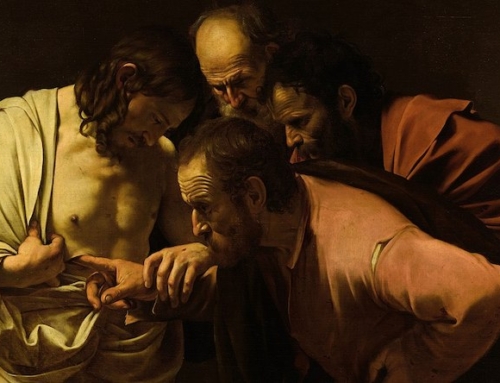There lived in fourteenth-century Rhineland a young woman of a respectable family. Raised by such a family in a land under the Christian Gospel for centuries, she became a pious young woman. She must have been full of hope for the future and probably looked forward to a simple life as a Christian mother married to a respectable husband.
Unfortunately, there was a corner of that Christian land where the Gospel did not prevail. A forest along the Rhine was under the dominion of a robber and murderer who killed all lonely travelers without exception. Not content to limit his crimes to banditry, the criminal tricked our girl away from the protection of her family by some ruse and forced her to become his wife. And so she became the companion of a killer, and whatever hopes she once had for life seemed lost.
Despite the questionable validity of such a forced marriage, she seems to have decided to be the best wife that she could be in such circumstances. Though her husband’s line of work caused her great pain, she looked for his good, perhaps only because it was inextricably linked to her own. Out of devotion, or out of fear of destitution, or some other cause which we can only conjecture, she would not reveal her husband’s line of work to those who could do him harm. Instead, she sought his conversion by pleading with him and with God.
As they approached the forest on one occasion, hoping to find and ensnare a traveler, they caught sight of a Dominican friar alone at the entrance, waiting for companions with whom he could traverse the disreputable wood. Although the friar was immediately suspicious of the husband—perhaps the pike and knife gave it away, the three unlikely companions set out together through the forest.
Leaving her husband behind some, the girl drew up alongside the friar and asked him to hear her confession. She knew that he had a reputation as a spiritual master, and perhaps hoped that the sacrament would somehow save her. She poured out her sins and explained to him the tragedy of her life. Absolved, she joined her husband in the back and began to whisper to him, beseeching her husband to likewise confess his sins to the friar and receive God’s forgiveness. Eventually, he consented and approached the timid friar.
The priest assumed he had been betrayed when the wife started whispering to her husband. His fears were not palliated when the murderer approached him. He soon found himself walking on the edge of the path between a pike and knife on one side and the waters of the Rhine on the other. The murderer began to confess everything, and he alarmed his confessor in particular when he told a story of how he knifed a priest during confession in that same forest and threw him into the Rhine. At this, the mortified friar surveyed his limited options, and nearly passed out.
On his way to the ground, he was caught by the girl, who explained to him that he had terribly misunderstood her husband’s intentions. The murderer told the friar that, because of his good deeds, he would be spared. As they left the forest, the criminal begged the priest for his prayers.
Blessed Henry Suso never saw the couple again. No more is known exactly about the path that their lives took, whether it was happy or sad, or whether that young woman saw any of the dreams of her girlhood realized. Blessed Henry does relate to us, however, that in his prayer for his would-be assailant he received assurance that the murderer’s soul would be saved, and that, because of his faith, he would never be separated from God.
That nameless young German girl had everything taken from her, like so many other nameless characters whom history has forgotten. Yet somehow her faith and devotion, along with the prayers of a just man, were able to bring the Gospel to the strangest place.
✠
Image: Carl Frederik Aagaard, Forest scene from Sorø, Denmark







